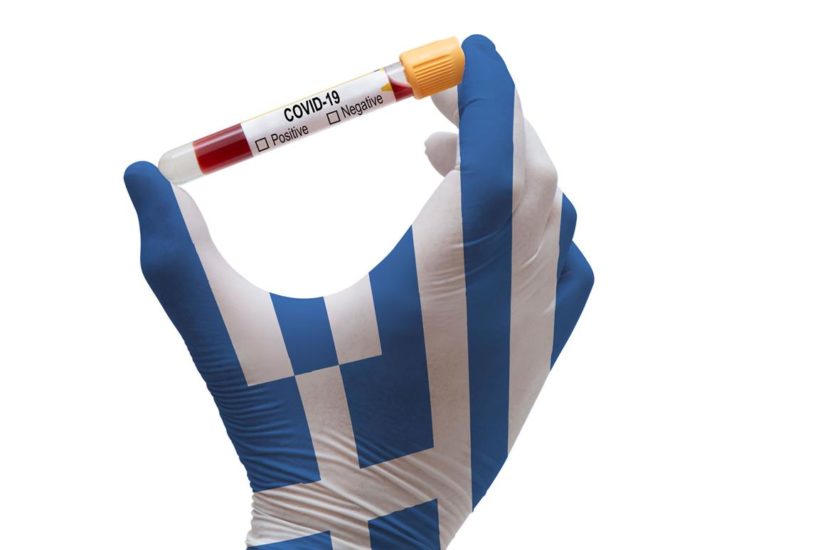
An AI-based project combines real-time testing data with information from tourists visiting Greece to build a risk profile, helping officials make decisions about who to test for COVID-19.
Researchers from USC Marshall and Wharton team up with the Greek Government to safely reopen to tourism
USC researchers are using an AI-based project to support decision-making by the Greek government as it reopens the tourist industry.
A multi-disciplinary team of researchers and policy makers have announced an AI-based project, nicknamed “Eva,” that uses data to support decision-making by the Greek government as it reopens the tourist industry vital to its economy amid the ongoing pandemic.Kimon Drakopoulos, and Vishal Gupta, assistant professors of data sciences and operations at the Marshall School; Hamsa Bastani, an assistant professor of operations, information and decisions from the Wharton School at the University of Pennsylvania; Jon Vlachogiannis, founder of AgentRisk; and the Greek government came together earlier this summer to build the machine-learning platform.
How to Reopen—Safely
Greece is home to approximately 11 million people, but has welcomed more than 33 million visitors annually in recent years. Tourism accounts for close to 20 percent of the country’s employment.
That ground to a stop with the novel coronavirus pandemic. In February, Greece saw the dire situation in Italy and quickly took action. A full lockdown was mandated on March 26.
These measures were successful. To date, Greece has had less than 200 COVID-related deaths. But although a reopening plan was announced in May, safely welcoming back tourists remains a challenge while the pandemic continues.
Drakopoulos, a data scientist and expert in how contagion spreads through systems, knew he could help build a solution.
He broached the idea of a data-driven approach to reopening the Greek islands to tourism earlier in the summer. When the idea gained traction, he realized he would need machine learning and optimization expertise. He brought in academic colleagues Gupta, an expert on machine learning, data-driven optimization and resource allocation problems, and Bastani, an expert in machine learning and sequential decision-making. He also recruited Vlachogiannis, a data-scientist and serial entrepreneur in the analytics/tech space, to design the database architecture that would be necessary for a large-scale, high-performance implementation.
Drakopoulos is currently in Greece working with public health and policy leaders to coordinate Eva’s deployment, while Bastani and Gupta refine the underlying algorithms and Vlachogiannis optimizes its speed and scalability from the United States.
The Difference is Real Time Data
“Unlike a strict, one-size-fits-all approach to managing the pandemic, such as mandating that all visitors self-quarantine for 14 days, Eva uses real-time data to learn, customize recommendations, and support decision-makers as they balance public safety, economic growth; and intelligently allocate valuable testing resources, according to the researchers,” said Drakopoulos.
The process begins with a simple form completed 24 hours before arrival in Greece to build a risk profile for each visitor. Based on that profile, Eva suggests which visitors should be tested for COVID-19 on arrival and which can safely be admitted without testing.
Crucially, Eva uses past data and optimization to simultaneously improve its own risk predictions while also identifying sick visitors before they enter the country, all subject to Greece’s current COVID-19 testing capacity.
The system provides several benefits for travelers and decision makers by leveraging data to enhance public safety:
- Efficiency: With as many as 40,000 people per day arriving at points of entry around the country, Greece cannot test everyone who might bring coronavirus into the country. Using data to assess risk factors focuses testing on the riskiest travelers, enhancing public health and safety while responsibly allocating valuable testing resources.
- Convenience: A streamlined operations including the pre-arrival form, expedited testing, and seamlessly connected databases minimizes disruptions to travelers. Most travelers are not subject to additional screening, and those who are are usually on their way to enjoying Greece within 24 hours without wasting valuable vacation time.
- Responsiveness: By leveraging real-time data to allocate resources, Eva’s analytics support rapid decision-making, allowing policy-makers to quickly respond to unexpected super-spreader events or flare-ups.
No screening procedure can possibly find every infected visitor. Eva dovetails with Greece’s existing contact-tracing system to catch anyone who slips through the cracks. Eva’s risk-profiles, test allocations and other data analytics form a real-time dashboard, visually representing the latest information to the Greek Government to inform decision-making.
“New testing results are continuously incorporated into the dynamic learning algorithm, giving Eva a distinct advantage over static COVID-19 screening policies,” said Bastani. “This is an exciting step forward in evidence-based policy-making.”
A Huge Day for Data Science
The researchers agreed that the EVA project reflects applied research at its most crucial.
“For me, this is about not only applying my work in data science to help the people of Greece,” said Drakopoulos, a Greek native who left to earn his Ph.D. at MIT, “but also the people of the world who love to travel and worry about the safety of doing so.”
Gupta agreed. “It’s a great example of what can happen when multi-disciplinary teams come together to solve a problem. Hopefully, academics and policy-makers across the world will continue to collaborate to create effective, evidence-based solutions to COVID-19’s many challenges,” he said.



